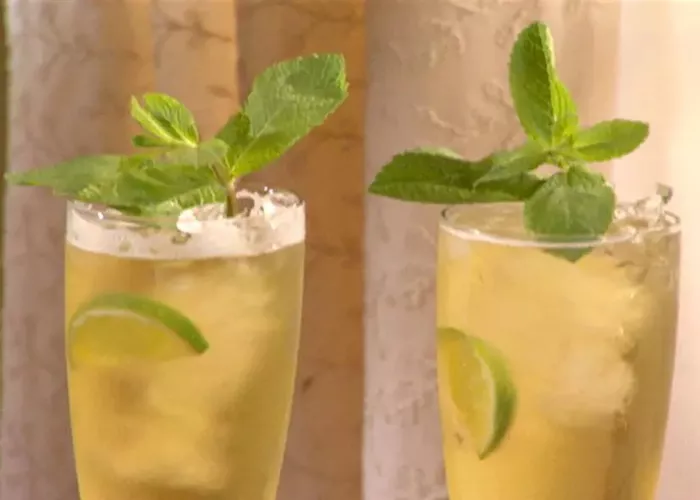Cocktails have become an integral part of our social and drinking culture. From swanky bars to casual get-togethers, these mixed drinks are a favorite among many. But have you ever wondered why these particular drinks are called cocktails? The origin of this term is shrouded in mystery and speculation, with multiple theories vying for attention. In this comprehensive guide, we will embark on a journey through history, culture, and the evolution of mixology to uncover the reasons behind the name “cocktail” and understand its significance.
The Etymology of the Word “Cocktail”
The exact etymology of “cocktail” is a subject of much debate. One of the earliest recorded mentions dates back to the late 18th century. Some believe it might have originated from the French word “coquetier,” which was a type of egg cup. Legend has it that a tavern keeper in New Orleans used to serve drinks in these egg cups, and over time, the name got anglicized to “cocktail.” Another theory suggests that it could be related to the practice of using a cock’s tail feather as a garnish in drinks, which was a fashionable trend in certain circles. However, neither of these theories has been conclusively proven, and the true origin remains elusive.
The Evolution of Cocktails in American History
Cocktails really took off in America. In the early 19th century, the United States was a melting pot of cultures, and with that came a fusion of different drinking traditions. People started mixing spirits with various ingredients like bitters, sugar, and fruit juices to create unique flavors. These early cocktails were not only a way to enjoy alcohol but also had practical purposes. For example, bitters were believed to have medicinal qualities, and mixing them with alcohol was thought to be a remedy for various ailments. As the country grew and cities like New York and New Orleans became bustling hubs, bars and saloons proliferated, and the demand for innovative cocktails soared.
The Role of Cocktails in Social Gatherings
Cocktails have always played a significant role in social gatherings. They are more than just drinks; they are conversation starters and mood enhancers. Whether it’s a glamorous cocktail party where people mingle in elegant attire or a laid-back backyard barbecue, cocktails add a touch of festivity. Their colorful and creative presentations make them visually appealing, and the wide variety of flavors means there’s something for everyone. At a formal dinner, a well-crafted cocktail can set the tone for the evening, while at a casual hangout, it helps create a relaxed and convivial atmosphere.
The Art and Science of Mixology
Mixology, the art and science of creating cocktails, has evolved tremendously over the years. Bartenders today are like alchemists, carefully combining different spirits, liqueurs, juices, and garnishes to produce harmonious flavors. It’s not just about mixing ingredients haphazardly; there’s a precise methodology. The balance of sweet, sour, bitter, and alcoholic components is crucial. For instance, a classic mojito requires the right amount of fresh mint leaves, lime juice, sugar, rum, and soda water to achieve that perfect refreshing taste. The choice of glassware also matters, as it can enhance the drinking experience. A martini served in a chilled martini glass not only looks sleek but also keeps the drink cold longer.
The Cultural Significance of Cocktails
Cocktails have permeated different cultures around the world. In tropical regions, cocktails like the piña colada and mai tai have become synonymous with beach vacations and relaxation. They embody the carefree spirit of the islands. In Europe, cocktails have found their niche in upscale bars and restaurants, often with a focus on classic and refined recipes. In Asia, there has been a growing interest in cocktails, with local ingredients and flavors being incorporated to create unique concoctions. For example, Japanese bartenders have mastered the art of using sake and other traditional Japanese spirits in cocktails, adding a touch of elegance and sophistication.
The Influence of Pop Culture on Cocktails
Pop culture has had a profound impact on the popularity and perception of cocktails. Movies and television shows often feature characters sipping on glamorous cocktails, making them aspirational. Think of James Bond and his iconic “shaken, not stirred” martini. This simple line not only made the martini even more famous but also influenced how people ordered and expected their martinis to be made. Music festivals and nightlife scenes also fuel the demand for trendy cocktails. DJs and performers often have signature drinks associated with their events, further popularizing certain cocktails among the younger generation.
The Future of Cocktails
As we look ahead, the world of cocktails is set to continue evolving. With an increasing focus on health and wellness, we might see more low-alcohol and non-alcoholic cocktails on the menu. Bartenders will likely experiment with new and exotic ingredients, perhaps sourced from remote regions of the world. Sustainability will also play a role, with bars opting for locally sourced and organic ingredients. Technology could even enter the mix, with apps that help people create their own cocktails at home or virtual reality experiences that simulate a high-end bar setting for cocktail enthusiasts.
Conclusion
In conclusion, the term “cocktail” has a rich and complex history that intertwines with social, cultural, and technological developments. These drinks have come a long way from their mysterious origins and have become a global phenomenon. Whether you’re a casual drinker who enjoys a simple margarita on a hot day or a connoisseur who savors a meticulously crafted aged whiskey cocktail, understanding the story behind the name and the evolution of cocktails adds a new dimension to the drinking experience. So, the next time you raise a glass of your favorite cocktail, you’ll have a deeper appreciation for what it represents.
You might be interested


